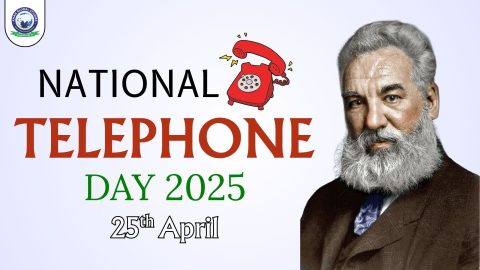Christmas Day 2024, celebrated as the birthday of Jesus Christ, is one of the most popular and sacred festivals worldwide. It is observed on December 25 each year with great enthusiasm and joy. The day holds both religious and cultural significance and is celebrated not only by the Christian community but also by people from other religions.
Historical Background
In ancient times, Christians did not agree on a fixed date for celebrating this festival. In the 4th century, Pope Julius I officially designated December 25 as the date for Christmas. During the medieval period, traditions such as communal feasts, gift exchanges, and carol singing became associated with Christmas.
Name and Origin
- The word “Christmas” comes from “Christ’s Mass.”
- It is also known by other names like “Nativity” and “Yule.”
- The term “Xmas” is derived from the Greek letter “Χ” (Chi).
Religious Significance
- Christmas is a major Christian festival, and its preparation begins on the first Sunday of Advent. According to Christian beliefs, Jesus Christ was born in Bethlehem, as mentioned in the Bible.
Selection of the Date
December 25 was first chosen as the birthday of Jesus Christ in the 4th century in Rome. This date coincided with the winter solstice and the Roman festival “Sol Invictus.”
Christmas Day in the 17th and 18th Centuries
After the Protestant Reformation, Christmas continued to be celebrated by various churches, such as the Anglican and Lutheran churches. However, in England, Puritans viewed it as a Catholic practice and banned it, imposing a full restriction on Christmas in 1647. In defiance, Christmas celebrations continued, and with the return of King Charles II in 1660, the celebration of Christmas was revived. In Scotland, Christmas was abolished in 1640, but it was reinstated as a public holiday in 1871.
In Colonial America, Puritans also opposed Christmas, and it was banned in Boston in 1659. However, in other areas like Virginia and New York, Christmas was celebrated.
In the 19th century, authors like Charles Dickens popularized Christmas by associating it with family, compassion, and gift-giving. The tradition of the Christmas tree also began in Britain and the United States during this time.
History and Evolution of Christmas
In the 1820s, Christmas enthusiasm was revived in America through the stories of Washington Irving. Irving’s stories were based on traditional English Christmas celebrations. In 1822, Clement Clarke Moore wrote A Visit from St. Nicholas (also known as Twas the Night Before Christmas), which helped popularize the tradition of gift-giving. In 1850, Harriet Beecher Stowe, in her book, discussed how Christmas was losing its true meaning due to shopping.
By 1860, several states in America had adopted Christmas as a legal holiday. In 1870, Christmas was declared a federal holiday in the United States.
In the 20th century, during World War I, informal Christmas truces occurred between warring soldiers in 1914, where they exchanged gifts and communicated, symbolizing humanity even in the darkest times. In the Soviet Union, Christmas celebrations were banned, but this ended in 1991.
Today, Christmas is celebrated globally, even in countries where the population is predominantly non-Christian. Countries like Japan and Turkey have adopted Christmas traditions such as gift-giving, decorations, and Christmas trees. Many non-Christian customs have also been incorporated into Christmas celebrations.
As a religious festival, Christmas is often observed by attending church services, which hold particular significance for the Christian community.
Importance of Christmas
Christmas Day is the celebration of the birth of Jesus Christ, also known as Lord Jesus. Jesus Christ brought the message of love, forgiveness, and peace. According to Christian beliefs, Jesus was born on Earth to free humanity from sin.
Traditions and Customs
- Decoration: Christmas trees, lights, and stockings are decorated.
- Gifts: Characters like Santa Claus and Saint Nicholas give gifts to children.
- Religious Rituals: Prayers and Midnight Mass are held in churches.
- Food: Special meals, sweets, and cakes are prepared.
- Cultural Activities: Christmas carols, plays, and movies are organized.
Economic Impact
- Christmas is an important time for businesses and retailers.
- This festival leads to a significant increase in the sale of gifts, decorations, and food.
Cultural Diversity
- Christmas traditions vary across different countries.
- These include a mix of pre-Christian, Christian, and secular customs.
Modern Influence
- Over the past few centuries, the influence and commercialization of Christmas have rapidly increased.
- Today, the holiday holds significance both religiously and culturally.
Preparation for Christmas Day 2024
The time leading up to Christmas is called “Advent,” lasting for four weeks. During this period, people prepare for the sacred holiday through prayer, fasting, and charity. Homes and churches are decorated with lights, Christmas trees, and other ornaments.
The Christmas Tree and Decoration
The Christmas tree is the central symbol of the festival. It is decorated with colorful bulbs, stars, bells, and gifts. The star on top represents the shining star that appeared in the sky at the time of Jesus’ birth.
Christmas Day 2024 Traditions
- Midnight Mass: On the night of December 24, special prayer services are held in churches.
- Food and Celebrations: Special meals are shared with family and friends, including cakes, cookies, and traditional dishes.
- Gift Exchange: Santa Claus visits children, bringing gifts and joy.
Message of Christmas Day 2024
Christmas inspires us to spread love, compassion, and serve humanity. The festival symbolizes unity, peace, and harmony among all religions and cultures.
Conclusion
Christmas is not just a religious festival but an occasion that carries the message of unity, kindness, and spreading joy. Regardless of religion or belief, the celebration of Christmas is heartwarming and filled with excitement. Through this festival, we are inspired to embrace happiness and goodness in our lives.




